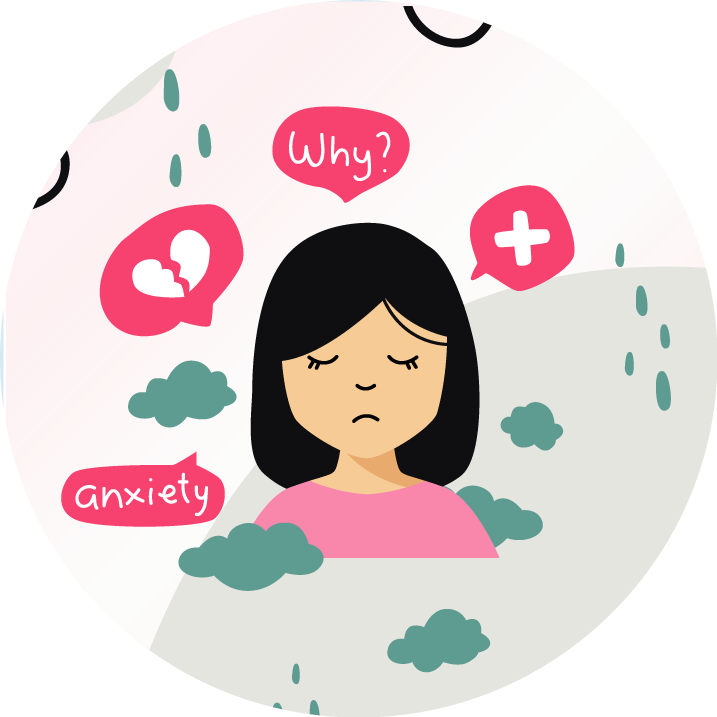Strategies to Thrive Mentally in a High-Pressure Job

Strategies to Thrive Mentally in a High-Pressure Job
June 09 2025 TalktoAngel 0 comments 326 Views
In today’s competitive work environment, high-pressure jobs have become the norm rather than the exception. From tight deadlines and ambitious targets to long working hours and increased responsibilities, employees often find themselves in a constant state of mental strain. While some stress can act as a motivator, chronic stress can lead to burnout, anxiety, and even physical health issues. Thriving mentally in such environments requires intentional strategies that not only promote resilience but also foster long-term emotional well-being. In this blog, we explore practical and effective strategies to help professionals maintain their mental health and perform optimally, even under intense pressure.
1. Establish Clear Boundaries
Setting boundaries between one's personal and professional lives is one of the most crucial tactics for maintaining mental health in high-pressure situations. The line between professional and personal time often becomes blurred, especially with the rise of remote work and constant digital connectivity.
How to implement:
- Define clear work hours and stick to them.
- Refrain from responding to emails or answering work-related calls outside of your designated working hours.
- Designate a separate workspace, even at home, to mentally “clock in” and “clock out.”
Boundaries help preserve your mental space, allowing time to recharge and engage in non-work-related activities that bring joy and relaxation.
2. Practice Mindfulness and Stress-Reduction Techniques
Mindfulness, the practice of being fully present in the moment, has been scientifically proven to reduce stress and improve mental clarity. In a high-pressure jobstay grounded can be a game-changer.
Techniques to try:
- Deep breathing exercises during short breaks.
- Guided meditation apps like Headspace or Calm.
- Body scans and progressive muscle relaxation techniques.
Even dedicating five to ten minutes daily to mindfulness can significantly improve emotional regulation and reduce mental fatigue.
3. Prioritize Tasks with Smart Time Management
High-pressure jobs often demand multitasking and quick turnarounds. Lack of effective time management can quickly lead to feelings of stress and being overwhelmed. Prioritizing effectively can make the workload feel more manageable and reduce stress.
Tips to improve time management:
- Break large projects into smaller, actionable steps.
- Use techniques like Pomodoro (25-minute work intervals with breaks) for sustained focus.
Effective time management not only increases productivity but also enhances a sense of control, which is critical in stressful environments.
4. Build a Supportive Work Network
Humans are social creatures, and having a trusted circle at work can greatly impact how we handle stress. Feeling connected and supported makes it easier to navigate difficult situations and share burdens.
Ways to foster support:
- Participate in team activities and open communication.
- Seek a mentor or confidant for guidance and reassurance.
- Don’t hesitate to share challenges with HR or management when needed.
Creating a supportive environment at work promotes psychological safety and strengthens mental resilience.
5. Invest in Physical Well-Being
Mental and physical health are intricately linked. Neglecting physical health often leads to emotional instability, reduced focus, and burnout. A holistic approach to well-being includes attention to diet, sleep, and exercise.
Essential habits:
- Get at least 7-8 hours of quality sleep.
- Incorporate physical activity, such as walking, yoga, or gym sessions, into your routine.
- Eat balanced meals rich in protein, vitamins, and minerals to fuel the brain.
Regular physical self-care serves as a buffer against the negative effects of stress and builds overall endurance.
6. Seek Professional Help When Needed
Despite your best efforts, there may be times when the mental toll becomes too much to bear alone. Therapy or counseling can provide valuable tools and insights for coping with workplace stress.
Signs it might be time to seek help:
- Persistent anxiety or irritability.
- Difficulty concentrating or completing tasks.
- Changes in sleep or appetite patterns.
Platforms like TalktoAngel or employee assistance programs (EAP) can connect you with licensed mental health professionals, making help more accessible than ever.
7. Redefine Success and Be Kind to Yourself
High-pressure environments often equate success with perfection, but this can be a dangerous trap. Setting goals that are beyond reach often fosters feelings of inadequacy and elevates emotional pressure.
Healthy mindset shifts:
- Accept that mistakes are part of growth.
- Celebrate small wins along the way.
- Refrain from measuring your worth against others; instead, concentrate on how far you've come in your journey.
Self-compassion is a powerful antidote to burnout. Thriving mentally means honouring your efforts, even on tough days.
8. Take Regular Breaks and Vacations
Continuous work without rest drains creativity and motivation. Short breaks throughout the day and longer periods of rest (like vacations) are essential for mental rejuvenation.
Break strategies:
- Schedule 5-10 minute breaks every hour to stretch or step outside.
- Plan longer vacations or long weekends to completely unplug from work.
Time away from stress allows the brain to reset, improving problem-solving and emotional well-being when you return.
9. Use Feedback as a Growth Tool
In high-pressure jobs, feedback often comes fast and frequently. While it can feel intimidating, reframing feedback as a growth opportunity rather than criticism can lessen emotional impact and promote self-improvement.
How to use feedback constructively:
- Listen actively and ask clarifying questions.
- Reflect on feedback without defensiveness.
- Implement suggestions and track progress.
Learning to accept feedback with openness helps build emotional strength and adaptability.
Engage in Meaningful Hobbies Outside Work
When work consumes most of your time and identity, it becomes harder to decompress. Engaging in hobbies provides emotional relief and helps maintain a well-rounded sense of self.
Ideas to explore:
- Reading, painting, or gardening.
- Volunteering or joining a local club.
- Learning new skills like cooking, music, or photography.
Hobbies act as a personal sanctuary and remind you that there is life beyond deadlines and pressure.
Conclusion
Thriving in a high-pressure job doesn’t mean eliminating stress; it means building mental resilience, cultivating healthy habits, and seeking balance in everyday life. By proactively managing your mental health through practices like mindfulness, therapy, and regular self-care, you not only enhance your work performance but also preserve your emotional well-being in the long run. Platforms like TalktoAngel offer accessible online counselling and professional support, empowering you to cope effectively and thrive both personally and professionally. Remember, success is not just about results, it's also about sustaining your joy, passion, and peace of mind.
Contributed By: Dr. (Prof.) R. K. Suri, Clinical Psychologist and Life Coach, &. Ms. Tanu Sangwan, Counselling Psychologist.
References
- American Psychological Association. (2023). Stress in America: Coping with high pressure jobs. Retrieved from https://www.apa.org/news/press/releases/stress
- Kabat-Zinn, J. (2005). Wherever you go, there you are: Mindfulness meditation in everyday life. Hachette Books.
- Maslach, C., & Leiter, M. P. (2016). Burnout: A multidimensional perspective. In Professional burnout (pp. 1–16). Routledge.
- Selye, H. (1976). The Stress of Life. McGraw-Hill.
- World Health Organization. (2022). Mental health and work. Retrieved from https://www.who.int/news-room/fact-sheets/detail/mental-health-at-work
Leave a Comment:
Related Post
Categories
Related Quote

“Remember: the time you feel lonely is the time you most need to be by yourself. Life's cruelest irony.” - Douglas Coupland

“Anxiety is a thin stream of fear trickling through the mind. If encouraged, it cuts a channel into which all other thoughts are drained.” - Arthur Somers Roche

“You say you’re ‘depressed’ – all I see is resilience. You are allowed to feel messed up and inside out. It doesn’t mean you’re defective – it just means you’re human.” - David Mitchell, Cloud Atlas

"You are allowed to feel messed up and inside out. It doesn't mean you're defective—it just means you're human." - David Mitchell, Cloud Atlas

“Be like water making its way through cracks. Do not be assertive, but adjust to the object, and you shall find a way round or through it. If nothing within you stays rigid, outward things will disclose themselves.” - Bruce Lee
Best Therapists In India
























SHARE